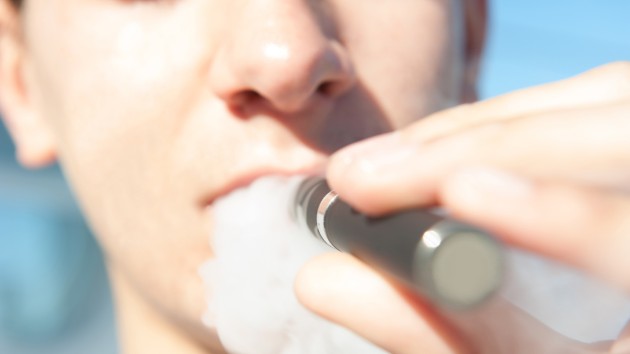
 Paolo_Toffanin/iStock(NEW YORK) — When 29-year-old Dr. Rose Marie Leslie, a second-year family resident at the University of Minnesota Medical School, first found out about TikTok, she did what every other millennial did and downloaded the app to try it out.
Paolo_Toffanin/iStock(NEW YORK) — When 29-year-old Dr. Rose Marie Leslie, a second-year family resident at the University of Minnesota Medical School, first found out about TikTok, she did what every other millennial did and downloaded the app to try it out.
“I had seen other TikTok videos on other social media platforms and they were always really funny and creative and made me laugh a lot,” she told ABC News’ Good Morning America.
She’s only been on the app for six months, but she caught on to the trend quickly by first using the app to depict how chaotic life is as a resident.
Perhaps what helped her gain a larger following was when she started sharing informational videos about medical facts.
“I realized the most likes and the most comments were on these specific medical videos,” she said. “The demographic that was using TikTok maybe was not getting as much health information at home or at school and was seeking it out in other places.”
Now she takes her office to the app to talk about things like tuberculosis, mental health and even sex education.
And she still tries to teach her followers a thing or two about health while keeping it fun.
“It’s been a great way for me to understand what health topics are important to youth and young adults,” she said.
She added, “I share health information the way I would to one of my friends. I really think that’s the most effective way about talking about a health topic and getting people to listen.”
Recently, Leslie’s videos have been focusing on a more serious topic: vaping.
In a story first reported by Rolling Stone, the doctor was featured after she started sharing TikTok videos about the epidemic.
In one video that has over 600K views, Leslie shows a lung X-ray, explaining in detail how lungs look like for someone who vapes.
“If you’re thinking about quitting, now’s the time to do it,” she says in the video.
She told GMA, “I have been following all the reports on this new disease related to vaping and thought it would be really important for teens who are on TikTok to hear so I decided to take that information and spread it on TikTok in a palatable and easy to understand way.”
Vaping-related illnesses in the U.S. has reached an all-time high with more than two dozen deaths confirmed, and more than 1,000 lung injury cases associated with the use of e-cigarette products reported in 49 states, according to the Centers for Disease Control and Prevention (CDC).
Recently, the CDC found that most patients with vaping-related illnesses report a history of using THC vaping-related products which suggest they were either obtained off the street or from other informal sources.
So far, the response to Leslie’s videos has been overwhelmingly positive. And teens are taking note.
Martin Wolk, a teen who follows Leslie on TikTok, was inspired to quit vaping after being an avid smoker for five years.
“I was scrolling through her videos and watching her vaping videos and it was really informative,” Wolk told GMA. “She showed you damage to the lungs and I’ve never really seen like X-ray photos of damage to people’s lungs after vaping so it kind of scared me and I wanted to do something about it.”
Like many teens, Wolk started smoking in middle school after being drawn to the variety of flavors. He described how hard it was for him to quit, but how important it is for people like Leslie to use social media to reach youth about the issue.
“There are a lot of kids right now who are vaping and it’s good to reach them through social media which they are always on,” he said.
“I’ve been pretty surprised that a lot of followers are asking me pretty basic health questions,” Leslie said. “I really feel like continuing to make videos on TikTok will help address a lot of the questions that people have.”
As the CDC continues to investigate vaping-related illnesses and lung-related injuries, Leslie said that getting information to teens is critical and doctors like her will start to use platforms like TikTok to reach them.
“As time goes on it’s just going to be more popular that medical professionals are using social media as a way to spread public health information and get connected to large groups of people,” Leslie said.
Copyright © 2019, ABC Audio. All rights reserved.
